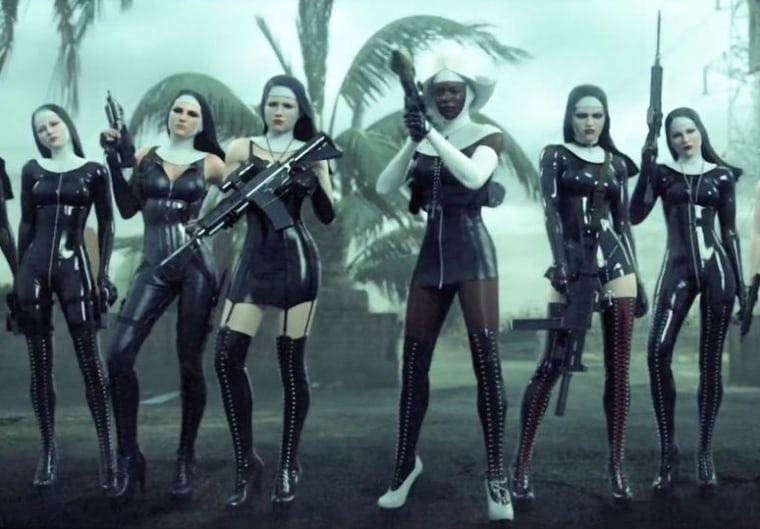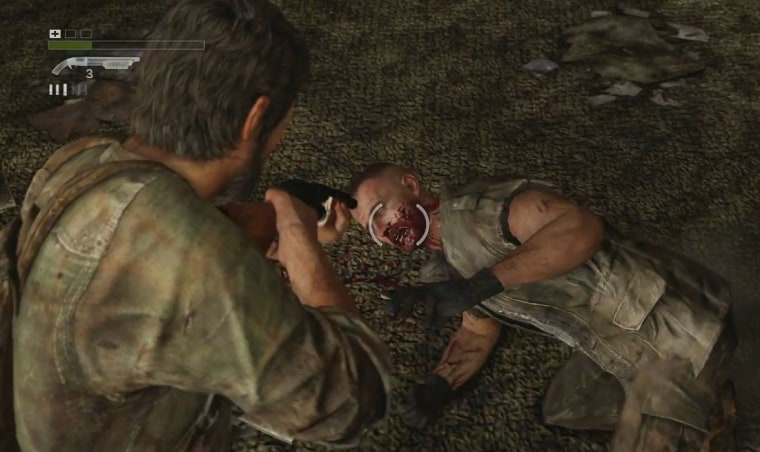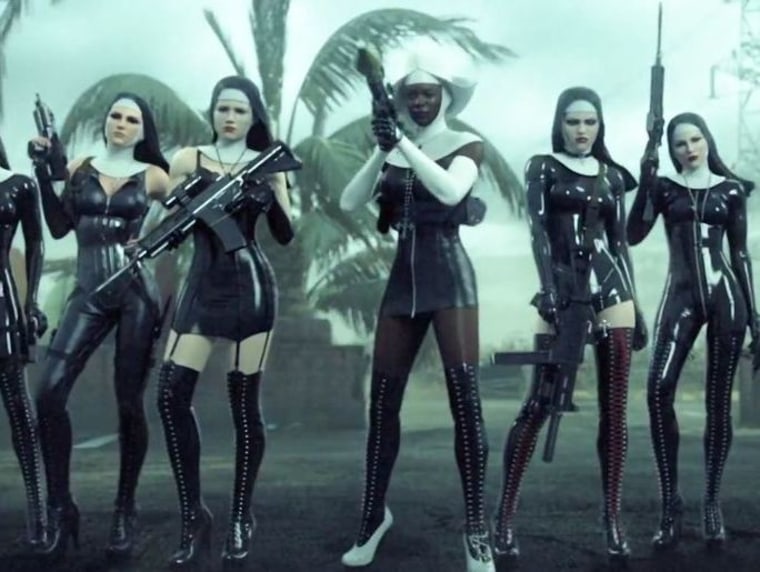
As lawmakers and pundits have begun trying to lay at least partial blame for the Connecticut shootings at the feet of violent video games, game enthusiasts themselves are calling on their fellow players to take the time to seriously examine the violence often depicted in their favorite pastime. And some gamers are even swearing off violent titles all together.
While it is still unclear which video games Adam Lanza played and what role they played in his life, various reports suggest the 20-year-old man who executed children, teachers and his own mother may have played everything from the non-violent "Dance Dance Revolution" to the very violent first-person shooting game "Call of Duty."
While gamers say that blaming video games for causing a mentally ill young man to gun down innocent children is irresponsible at best and politically motivated fear-mongering at worst, many also say it is important — in the wake of last week's very real violence — to consider the digital violence so prevalent in gaming.
Gamer Jeremy Norman — a former newspaper editor currently working at his alma mater, Virginia Tech, where in 2007 the worst mass shooting in the U.S. history happened — is one of those who has decided to quit playing violent video games entirely.
"For nearly 30 years I have squashed anthropomorphic mushrooms, cleaved zombies, and eviscerated the avatars of faceless gamers from around the world," he wrote in a moving guest editorial for gaming news and opinion site Kotaku.com. "I have no interest in any of that now. Not after Friday."
As the father of an almost 2-year-old, he writes, "I don't want to explain to my son why daddy is shooting the guys on the television. Why that's okay, but when it happens in real life, people cry."

Despite concerns among some gamers that this soul searching will be used to fuel the anti-gaming fire that is currently raging, Ben Kuchera, editor of the gaming news site Penny Arcade Report (and an NBC News partner) has written an eloquent essay about why it’s healthy, and important, for gamers to discuss the culture of game violence after a tragedy.
“Video games don’t lead to violence in the same way that heavy metal didn’t lead to violence, and Dungeons & Dragons didn’t lead to violence, and neither did pinball or jazz music,” he writes. But he goes on to suggest an exercise:
Here is a fun thought experiment: if you could do anything, be anyone, or have any power, what would you want to do? Fly? Swim to the bottom of the ocean? Be an officer on a starship and explore space? Make love to a beautiful or handsome man or woman? How far down the list is the fantasy of killing someone? Yet when we open up Steam or walk into a video game store, the killing fantasies are the most popular, and generally the most advertised. We should question how and why that’s happening.
Video game journalist Leigh Alexander explained in a recent post on her blog that video games are so appealing, in part, because they offer players a logical digital world in which they have a sense of control — this when there is so little control to be had in the real world. But she also writes, "I kill things in games every day, and sometimes I even shoot people in the face, but even I have begun to've had enough."
Furthermore, she wonders what the violence that is a part of so many video games says about those who play them.
It's as useless to "blame" video games for any violent act as it is to "blame" any other single factor in a massive socioeconomic ecosystem. Games do not "cause" things; we know that. But the entertainment we create and consume is no more and no less than a reflection of who we are.
Stephen Totilo, editor-in-chief of Kotaku.com, said, in fact, the soul searching over the growing gore in games began among players even before the recent mass killings. After the Electronic Entertainment Expo gaming trade show earlier this year, many lamented the hyper-violence on display in the games being shown off at the event.
At that expo, some gamers were put off after Sony showed a trailer for the forthcoming "The Last of Us" video game — a trailer that ended with the bad guy taking a gun blast to the face. More upsettingly, Square Enix showed a trailer for "Hitman: Absolution" in which the protagonist butchered a team of barely clad assassins disguised as nuns. (Be warned, the video below is graphic.)
"The backlash against that was not from outsiders who worried that these games might provoke real violence, but from gamers and game creators who wondered, convincingly, if the amount of blood and gore in games might be the enemy of good storytelling, compelling characters and other characteristics of sophisticated creative works," Totilo told me in an e-mail interview.
After the mass shooting at a theater in Colorado in July, Totilo wrote about how gamers and those involved in the game industry find themselves in a kind of waiting game after each mass shooting — waiting and watching to see how long it takes before those who often know little about their favorite pastime blame it for the latest atrocity. Still, he says, the role that video games played in these killers' lives should be examined.
"Games aren't guns or mental illness, but they're also not the white paint on the killer's bedroom wall," he said. "It doesn't mean games cause violence any more than it means that Jodie Foster caused John Lennon's death, but if a game was part of a killer's motivation, it's relevant. It's not a cause, but it's relevant. Games may help illuminate thoughts the killer had and the warped way they make decisions."
"I hope that those who do play violent video games find the courage to be increasingly honest and open about how games affect them," he said. But he also points out that the thoughtful reflection should go both ways.
"Unless you've played a first-person shooter, you can't form a smart opinion about what playing one might or might not do to someone," Totilo said. "My only hope is that those who criticize violent video games play them. It will help them understand."
Winda Benedetti writes about video games for NBC News. You can follow her tweets about games and other things on Twitter here @WindaBenedetti and you can follow her on Google+. Meanwhile, be sure to check out the IN-GAME FACEBOOK PAGE to discuss the day's gaming news and reviews.
